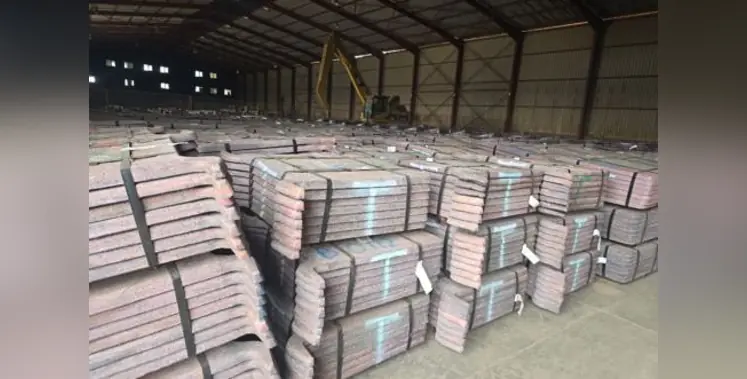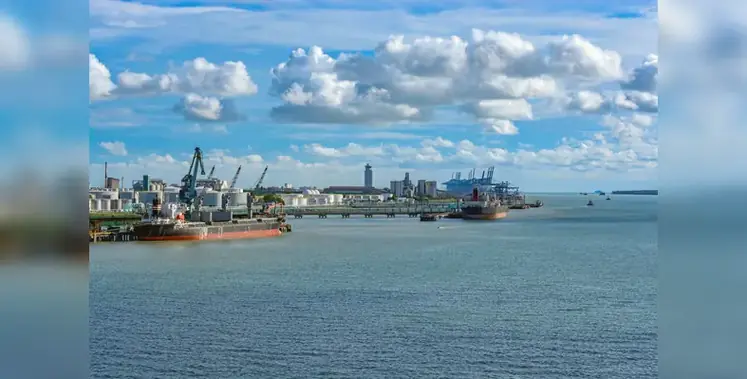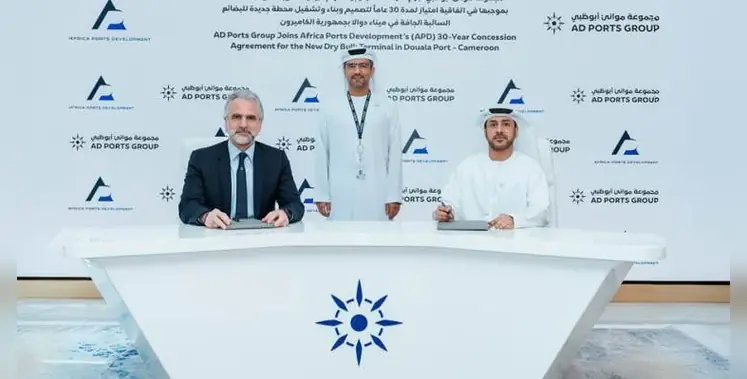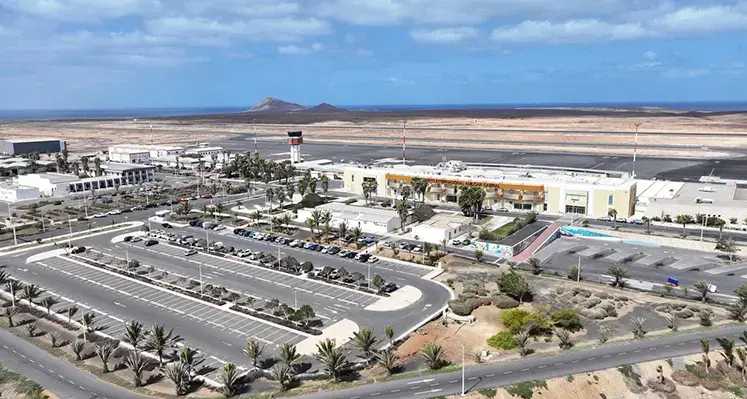
First low carbon copper anode shipment advances Lobito corridor and sustainable DRC to Europe supply chain. (Image source: Trafigura)
Trafigura has finalised the inaugural sale of low-carbon copper anodes manufactured by Kamoa Copper to the Aurubis Group, a globally recognised non-ferrous metals producer known for its high sustainability standards
The milestone delivery represents an important move towards supplying some of the lowest-carbon refined copper available worldwide.
The anodes were transferred to Trafigura’s dry port facility in Kolwezi, Democratic Republic of the Congo, and are scheduled for rail transport on the Lobito Atlantic Railway in the coming days. After reaching the Port of Lobito, the shipment will continue by sea to Aurubis for processing at its European refining facilities. The Lobito corridor offers the most direct connection between Kolwezi and an African export port, shortening inland transit to approximately seven days.
Production of the copper anodes took place at the newly commissioned smelter at the Kamoa-Kakula Copper Complex in the DRC. The facility features advanced direct to blister smelting technology provided by Metso Outotec. The Kamoa-Kakula operation has been recognised as the lowest carbon-emitting major copper mine globally.
Kamoa Copper manages the complex through a joint venture partnership between Ivanhoe Mines and Zijin Mining. Trafigura serves as one of three designated offtake partners for output from the smelter. Following full ramp-up, the facility is expected to produce up to 500,000 tonnes annually of 99.7% pure copper anodes, positioning it as Africa’s largest copper smelter.
Gonzalo De Olazaval, head of metals, minerals and bulk commodities, Trafigura, commented, "Bringing together Trafigura, Aurubis, Kamoa Copper and the Lobito Atlantic Railway to complete the sale and transport of low-carbon copper anodes from the DRC shows what the mining supply chain can achieve when it works together."
"This transaction reflects the strength of our long-standing relationships with Aurubis, a world class company in its field, and Kamoa Copper, whose state-of-the-art smelter is among the least carbon-intensive in the industry - a testament to the world-class operation it has established in the DRC."
"We are equally proud that these anodes will be transported via LAR - a milestone made possible by the vision and support of the governments of the DRC and Angola, as well as the loan package provided by the U.S. International Development Finance Corporation (DFC) and the Development Bank of Southern Africa (DBSA).”
Ivanhoe Mines’ founder and executive co-chairman, Robert Friedland, commented, "The first shipment of 99.7%-pure copper anodes marks another milestone for Kamoa-Kakula and for Africa’s rapidly advancing infrastructure. The Lobito Atlantic Railway has become a transformational gateway linking the extraordinary mineral wealth of the DRC with global markets at unprecedented speed and efficiency."
"Copper produced at Kamoa-Kakula, transported via the Lobito Atlantic Railway and refined in Aurubis’s industry-leading low-carbon facilities in Europe, represents a new paradigm in the creation of the greenest and most sustainable refined copper supply chain serving global markets. Combined with our state-of-the-art smelter, this integrated supply chain is setting a new global benchmark for low-carbon-intensive copper for generations to come."
Operational data reflects the corridor’s growing momentum. In 2025, the Lobito Atlantic Railway transported more than 200,000 tonnes of cargo through the Port of Lobito. In January 2026 alone, volumes reached 30,000 tonnes, while the port handled a record 50,000-tonne bulk sulphur shipment.
Throughput is expected to rise consistently over the course of the year as the Lobito Atlantic Railway continues to strengthen its role as a dependable, high-capacity export route for the region.

















